“My mom signed me up, but I only got one class and dropped out. The teacher was a very strict lady, and I had other interests. At the time, I really thought I was going to be a rapper,” Trotter told BBC Mundo.
A second opportunity presented itself to him more than ten years later, but this time he had to become self-taught. Of course, he studied at the palace in Baghdad and played the piano that belonged to former Iraqi President Saddam Hussein.
It was 2003 and Trotter was part of the US troops involved in the occupation of Iraq..
This experience will change his life in many ways, inflicting serious physical, mental and emotional wounds on him, but will also be the beginning of a musical career that is now on an upward trajectory.
Trotter, along with his wife Tanya Trotter, is part of War and treatya duo that has released three albums and established itself on the American music scene. This has already earned him a 2020 Grammy performance and a 2023 Academy of Country Music Awards nomination..
And, by and large, it all started in the palace with the pianoforte.
“The Weakest Link”
Trotter was first introduced to Hussein’s piano through Robert Schitz, one of his unit commanders.
“He noticed the fear I had when I arrived in Iraq. It’s not like going to Disney World. You go to war and from the moment you come you feel it. You can hear gunshots, explosions, and even smell human lives,” says Trotter.
“Schitz identified me as the weakest link, as a person who could die or kill another.. He needed to relieve me of fear, and in my profile he read that music is what frees me from everything. Since he knew that there was a piano belonging to Saddam Hussein in the palace where we had our base, he took me to the basement where it was,” he adds.
It was a black piano. “Great,” describes Trotter, who admits that it wasn’t until much later, when he learned to play another piano, that he discovered how out of tune it was.
Getting to this basement was not easy. To do this, you had to make your way through rubble, bricks and ruins. Another reminder of the war in which he participated.
“When you think about the palace, you imagine how beautiful it was, but it was a bombed-out palace. So part of the walls collapsed, part of the roof remained open. And many parts were destroyed. So sometimes I had to step over, crawl or climb over the rubble to get to this piano,” he says.
Following the advice of Schitz, who suggested that he use the piano “whenever he wanted to find his way home”, Trotter went down to the basement every day for 15 months trying to learn how to play it.
search for harmony
The love of music is inherited. Her maternal grandmother plays the piano and all of her aunts sing gospel music. As did his mother, whom he describes as a very devout Christian whose religious fervor eventually marked Trotter’s love of music.
“I grew up in Cleveland, Ohio where there were a lot of radio stations offering both good and bad stuff. And my mom, to make sure I didn’t get hooked, set up her home radio so that it could only tune in to an AM station, which only talked about the Bible during the day, and good old songs played at night. And to be honest, that’s what determined my taste in music.he comments.
So he was introduced to the music of Nat King Cole, Willie Nelson, Patsy Cline, Nina Simone, Harry Belafonte or the Everly Brothers.
“They didn’t have a specific format. If it was good music, they would put it on. i remember it on this radio I also heard a woman shouting “Sugar, sugar.” And I was wondering who is she? (Celia Cruz). everything was very interestingrecalls Trotter.
Thus, when he had the opportunity to sit at Hussein’s piano, although he could not play it, Trotter was already addicted to music.

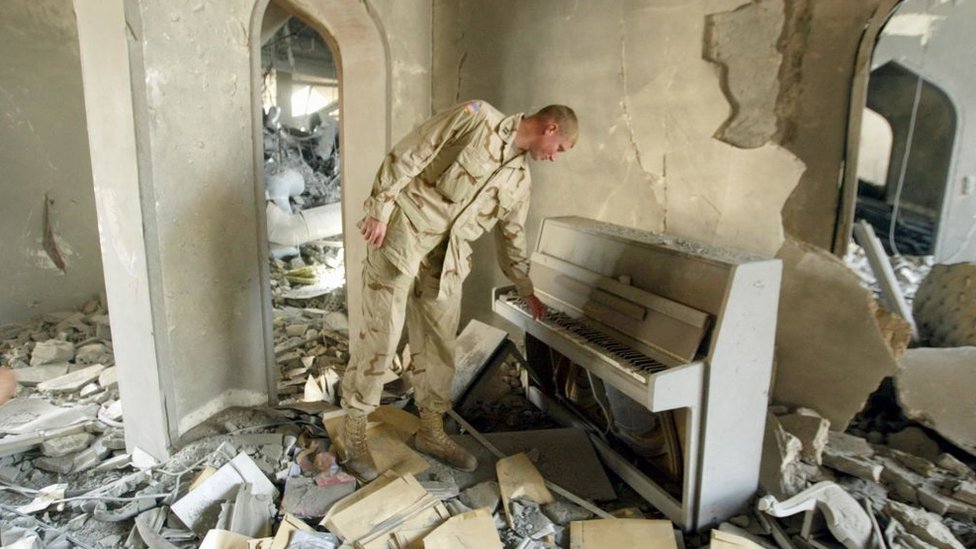

“I could always hear the notes and harmonize. So, I would go there and try with one finger. My strategy was to find three notes on the piano. Harmony. I didn’t know they were called chords. I didn’t know any terms. And one of the songs I started with was Read about mebecause the piano is so easy to play,” Trotter says as he hums this Bill Withers classic.
“So all of a sudden I thought wow. It sounds great together. And I thought that if I try to do the same with my left hand as with my right, maybe I can find a way to play. And before I knew it, I had developed my own playing style on this great instrument,” he adds.
funeral songs
Trotter loved to sit at the piano every day, trying to learn how to play and compose music, but it wasn’t until Captain Schitz died on a mission that his relationship with that instrument took on its true dimension.

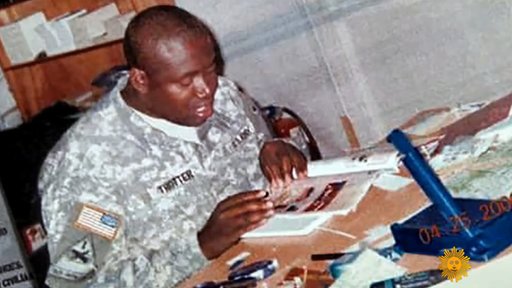

“I played and there were times when I felt like I had something good. But I missed the emotional connection to the tool until it was killed, because then I had a new goal., a new reason to learn how to play. I wanted to honor him and my teammates. I wanted to connect with them and experience a sense of healing. I think his death unlocked me and allowed me to connect with the instrument and get deeper into writing,” he says.
Trotter wrote his first song in honor of Schitz and sang it for his comrades at the funeral, a gesture that would eventually turn his life upside down.
“Usually at military funerals, soldiers behave very stoically. They remain very reserved, but during this song we didn’t. We break down, cry together and hug each other. And that would change my job,” he says.
“My commander saw this moment. And he wanted to know if I wrote the song and how long it took me. I answered him, and then he said to me: “Well, now it will be your job.” You will write songs for the fallen and sing them at their funerals. ‘Cause it helps heal our boys and, in a strange way, it lifts the morale of my unit,” he adds.
music and healing
This new feature will give new meaning to his time in Iraq.
When Trotter decided to sign up for the war, he tried to get his life in order. He was 20 years old and his girlfriend had just gotten pregnant at the time.

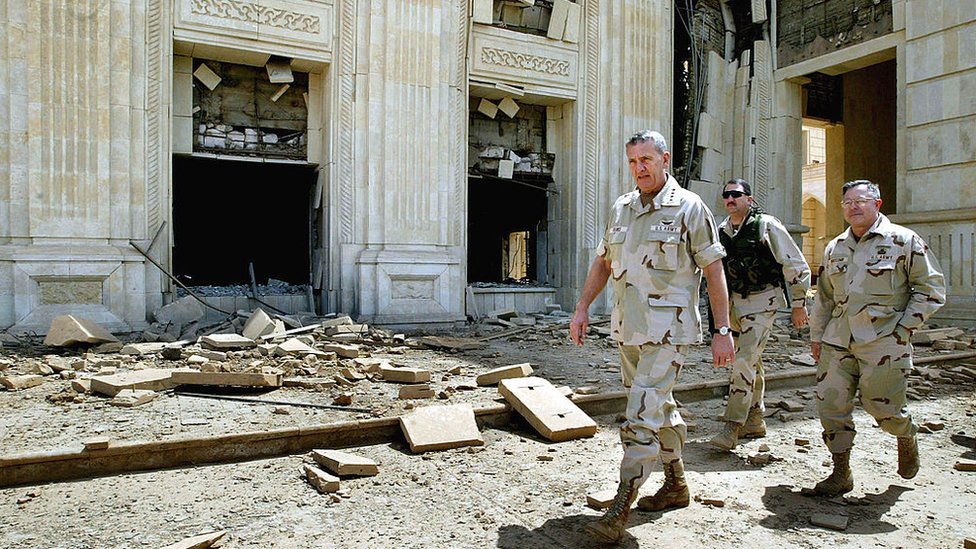

“I was determined to stop making terrible decisions. I was going to do something so that my daughter would have a chance in life and that I could take care of her. So I joined the army because it meant free health insurance and I didn’t have to worry about rent or anything. more than food and a cell phone bill,” he says.
But as he discovered when he first returned from Iraq, he found more than material security through music.
“The second time I signed up for Iraq, I did it by choice. When I got home, I felt very empty. I felt that no one else understood who I was, that I was disoriented, without purpose. I felt that my work there was not finished and that I should go back to my boys to help them heal, so I went back and stayed there until February 2007,” he comments.
During that second tour of Iraq, Trotter devoted himself mainly to making music, but on his return to the US he was again disoriented.

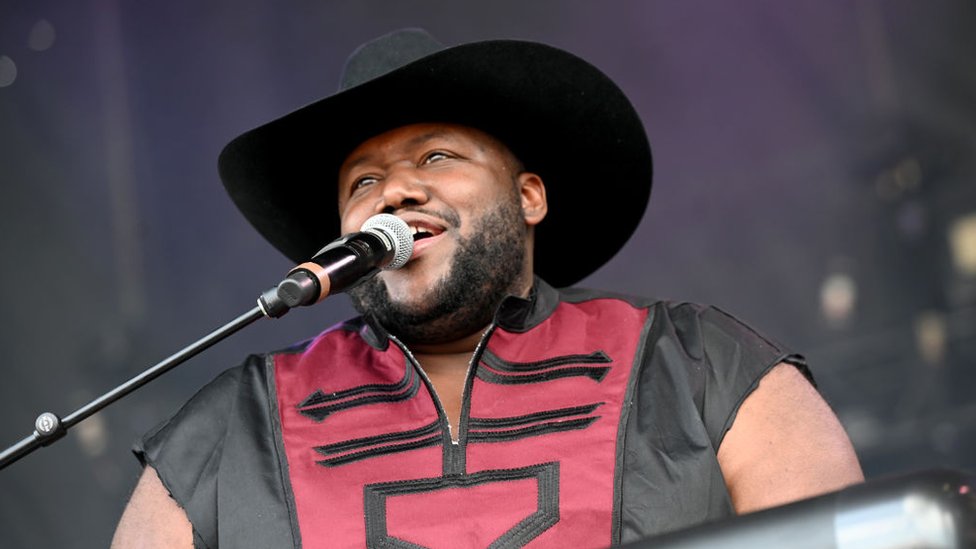

“Mentally I went through a lot in Iraq because I lost friends and brothers and sisters. I didn’t do my own healing. I was so focused on singing and making people happy rather than being happy myself,” he says.
He returned with mental and physical injuries. Suffering from chronic post-traumatic stress disorder (PTSD), chronic anxiety, chronic depression, and leg injuries.
So he wandered without a clear goal, trying to figure out his life, until in 2010 he met actress and singer Tanya Blount (now Trotter), his current wife.
Together they formed a musical duo in 2014, which they renamed in 2017 to War and treatya name that alludes to his life experiences as well as his idea of music as a healing tool.
“Love and music gave me hope. And I think that everyone deserves to feel the joy that I experience. For this reason, we do not include in our recordings or in our concerts a single song that we do not feel, that does not touch us, ”he points out.
With a musical style that Trotter defines as Americana because it contains elements of blues, country, jazz, rock ‘n’ roll, soul, R&B and gospel in its classic forms, the duo entered Billboard’s list of new artists this year.

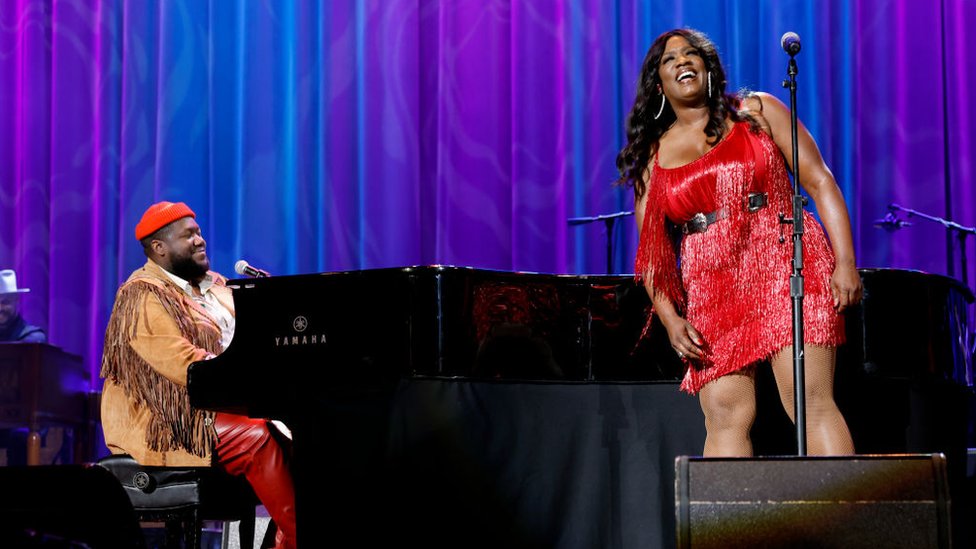

However, the path here was not easy and was not free of ups and downs. Including the severe crisis that occurred in September 2017, when Trotter was ready to take his own life.
“I stopped taking my medication. I had a moment in my life when I felt like nothing was working.. I was fired. We had an eviction notice on the door of the house. They confiscated my car for non-payment. I felt like I hit rock bottom in the failure department. Depression and PTSD were high and I decided I was the problem, so I was going to get out of the way,” says the artist.
“I was ready, but that day my wife identified depression in me, and before I knew it, the police and paramedics were at my door. She sat down next to me and said, “I know you’re going to kill yourself today, but I just need you to hold on for another five minutes.” Give me five minutes to love you and realize that it all makes sense.” We were both crying and I told him everything was fine,” he comments.
“And I keep living those five minutes,” he concludes.
If you or someone close to you is depressed or in trouble, seek help. You can find support resources based on your region here:
bbcmundo.com/seekhelp
Please be aware that you may receive notifications from BBC Mundo. Download the new version of our app and activate them so you don’t miss out on our best content.
Source: La Opinion
Alfred Hart is an accomplished journalist known for his expert analysis and commentary on global affairs. He currently works as a writer at 24 news breaker, where he provides readers with in-depth coverage of the most pressing issues affecting the world today. With a keen insight and a deep understanding of international politics and economics, Alfred’s writing is a must-read for anyone seeking a deeper understanding of the world we live in.
